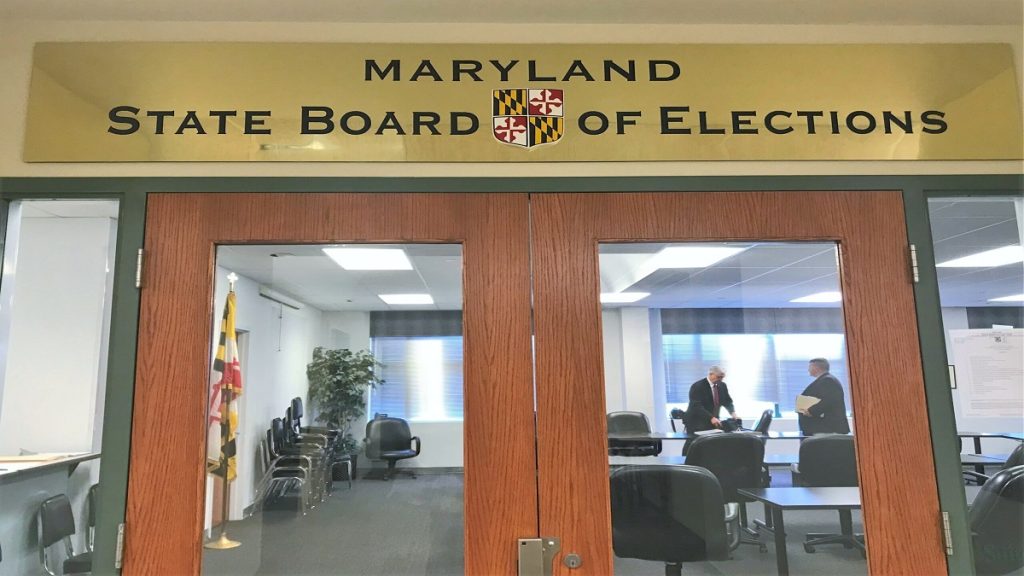Listen to the article
Maryland Launches “Defenders of Democracy” Initiative to Combat Election Misinformation
The Maryland State Board of Elections unveiled its Defenders of Democracy initiative on October 27, 2025, coinciding with the start of Media Literacy Week. The program aims to equip voters with practical tools to identify and counter election-related misinformation circulating on social media platforms.
The initiative focuses specifically on tackling false claims about voter eligibility, registration procedures, and voting methods. Maryland residents are being directed to a dedicated online reporting portal as their primary resource for verified election information.
“Media Literacy Week is the perfect moment to highlight the power every Maryland voter has to fight back against disinformation,” said Jared DeMarinis, state administrator of elections. “When you see something false, don’t ignore it. Report it, get the facts from us, and then share the truth. That collective action is what makes Maryland voters true Defenders of Democracy.”
Media Literacy Week, running through October 31, emphasizes the critical evaluation of information sources in an era where content spreads rapidly online. The initiative positions individual voters as essential participants in maintaining election integrity through three key actions: reporting suspicious content, verifying facts through official channels, and sharing accurate information.
The dedicated portal at elections.maryland.gov allows users to flag potentially false election claims, such as misleading posts about polling locations or mail-in ballot procedures. SBE staff review these submissions promptly, often issuing public clarifications or working with platforms to remove false content.
Common examples of election misinformation include fabricated alerts about voter purges or altered registration deadlines—tactics designed to erode public trust in the electoral process. This new initiative builds on prior SBE efforts to address disinformation threats.
In September 2024, officials warned residents about text message scams impersonating election authorities, urging people not to click suspicious links or share personal data. Foreign actors have also previously targeted Maryland elections, as noted in analyses of potential interference tactics in 2020, which included spreading false narratives about election results.
For Southern Maryland residents in Charles, St. Mary’s, and Calvert counties, the initiative has particular relevance amid local election preparations. These jurisdictions, representing about 15 percent of Maryland’s 1.7 million registered voters, handle registration through county boards that align with SBE guidelines.
County election supervisors have implemented layered safeguards against misinformation. Charles County establishes no-electioneering zones at precincts, while St. Mary’s County trains poll workers on rumor debunking. Calvert County promotes online tools for ballot tracking to reduce reliance on unverified social media posts.
DeMarinis emphasized the distinction between unintentional misinformation—shared in error—and deliberate disinformation designed to deceive voters. “Democracy depends on informed voters,” he noted. “By reporting disinformation and sharing accurate information, Marylanders are defending the very foundation of free and fair elections.”
Maryland’s election framework has been governed by the State Board since 1882, with secure processes mandated under Title 3 of the Election Law Article. Recent federal assessments, including the 2024 Election Administration and Voting Survey, have affirmed Maryland’s high compliance in accessibility and security, crediting proactive measures like disinformation monitoring.
Voters can register online via mva.maryland.gov until 30 days before an election or in person at local boards. Absentee ballots can be requested through VoteByMail.Maryland.gov for those unable to reach polling locations.
The Defenders of Democracy video, available on the SBE website, illustrates these protective steps in under two minutes, featuring everyday scenarios like debunking fake poll closure rumors. By empowering residents to take action, the initiative fosters a culture of accountability that is particularly vital in close-knit communities where word-of-mouth can amplify online claims.
As Media Literacy Week concludes, the SBE reaffirms its role as the authoritative source for election information, with the portal having logged hundreds of reports since its expansion in 2024. This collective vigilance not only safeguards the integrity of ballots but reinforces the fundamental democratic principle that accurate information forms the foundation of every vote cast.
Fact Checker
Verify the accuracy of this article using The Disinformation Commission analysis and real-time sources.



